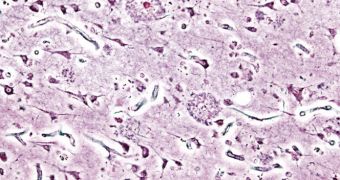Over the past few years, numerous studies have began shedding light on the origins of Alzheimer's disease. In the latest such work, experts highlight four genes that play a role in the development of this neurodegenerative condition.
Patients suffering from this disease generally tend to be unable to form new memories. They are also very irritable and confused, aggressive, prone to mood swings and language breakdowns, as well as long-term memory loss.
The disease is degenerative and terminal, and there is currently no cure that can make it go away entirely. But experts are working tirelessly towards developing one, and they are close to results.
In the new paper, published in the latest issue of the top journal Nature Genetics, a collaboration of researchers including experts from the Mount Sinai School of Medicine details a group of four genes that were found to play a role in the onset of this form of dementia.
“Mount Sinai has unique resources that we contributed to the study, having one of the largest brain banks for Alzheimer samples in the world,” explains MSSM scientist Joseph Buxbaum, PhD, the lead investigator on the research.
“Follow up studies of the genes identified, to determine how they affect brain biochemistry, are now possible in our samples, and this can help us understand how the genes contribute to Alzheimer’s disease,” he adds, quoted by Science Blog.
Buxbaum also holds an appointment as a professor of psychiatry, neuroscience, genetics and genomic sciences at Mount Sinai. The new work was carried out by experts with the Alzheimer’s Disease Genetics Consortium.
About 11,000 patients diagnosed with the condition were analyzed during the research, which included experts from 44 universities and research groups throughout the United States. Pennsylvania State University expert Gerard D. Schellenberg, PhD, led the work.
Using data from other studies, the total number of dementia patients analyzed rose to 54,000. This makes the new work one of the most comprehensive ever created on this topic.
During the study, the team was also able to confirm the discoveries of a US-European team, that found a fifth new gene responsible for the onset of Alzheimer's.

 14 DAY TRIAL //
14 DAY TRIAL //